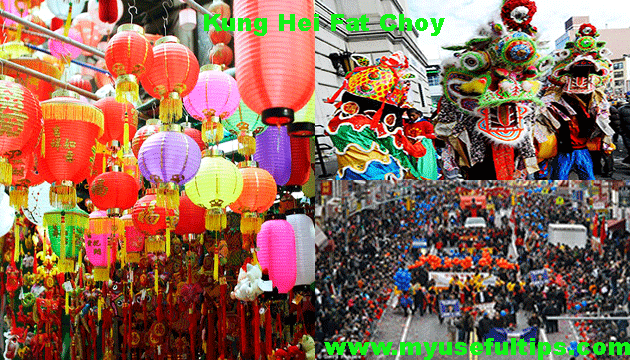Chinatown and Its Lunar New Year: How It Influences Us!
With more than a billion (1.36bn) people, there is no doubt that the Chinese would have the greatest diaspora in almost every major city in the world. They live and work abroad, most of them traders, and that is the reason why there is a so-called “Chinatown” being integrated everywhere in the world from industrialized to relatively small developing nations.
For instance and as previously mentioned(https://www.myusefultips.com/new/#sthash.gHwx5p9s.dpuf), the United States has to date about 4 million Chinese Americans, comprising the bulk of Asian Americans who have migrated to the United Sates, and most of them are in New York City. I had the chance to observe how Chinese traders “rules” along the Canal St. East Broadway of NYC, but thanks they in fact filled my homesickness and nostalgia during that time as almost everything was in the market from “Asian” food to small fashionable “trinkets”, which I loved by the way!
This Chinese phenomenon is not only true in NYC but also in smaller countries such as the Philippines. Chinese communities are visible and in fact prominent. In her book “World on Fire”, Yale Law Prof. Amy Chua mentioned that despite a small percentage (approx. 1%) of the Philippine population, Chinese Filipinos of pure blooded Chinese (Henry Sy, Lucio Tan, John Gokongwei, Andrew Tan, George Ty, Robert Coyuito, Tony Tan Caktiong, Lucio, Co and Emilio Yap) and I would add with “Binondo” (the Chinatown in Manila) connections, account for a major portion of the 60% of the Philippine economy. These men own the largest shopping malls, supermarkets, food chains and other manufacturing companies in the Philippines and they are included among the top Filipino billionaires in the Forbes list.
Chinese immigrants have grown to an extent due to interracial relationships (i.e., marriages between American and Chinese, Filipinos and Chinese, etc.). Thus, as the Chinese population grew in a particular country, so did the grandeur of the Chinese New Year celebration!
Chinese New Year is celebrated a bit late than our usual New Year’s celebration. It is considered to be the most important festival for the Chinese community and the celebration lasts for 15 days. Normally, Chinese New Year is on the first New Moon of the year, depending on the moon cycle, and it comes on a different day each year , and usually it falls during the beginning of Spring. For 2015, Chinese New Year starts on February 19th and it is the year of the zodiac animal, Wood Sheep.
In the Philippines, some Filipinos despite the absence of Chinese blood running through their veins, are being influenced, to some extent, by their Chinese superiors and friends as far as Chinese New Year’s celebration is concerned. They would in fact adopt, perhaps not everything, some of the more practical traditions while New Year is on its way.
So, what are these traditional practices, according to Chinese feng shui experts, which would make the Chinese New Year celebration right and make the year long a happy one? Here are some useful tips which are more usually undertaken, pragmatic and logical, in any New Year celebration:
1. Clean home and its surroundings for a cleaner and fresher environment before the New Year’s Day. Note: Refrain from cleaning the first few days.
2. Decorate home with something red. Wear something new and red as this color denotes happiness, prosperity and longevity. (Note: There will be another blog for the color of the year).
3. Prepare food/dinner for the family (fish for abundance, uncut noodels for long life, sweet dishes for sweetness, etc.) Rounded fruits are also fine, e.g. mandarin oranges for good luck and other fruits as well such as pineapple, etc.
4. Visit family, relatives and friends as part of reunion gatherings and give out money (placed in a red envelope called “ang pow”) especially to children as a symbol of generosity, prosperity and well-being.
5. Pay debts before the start of the New Year. Otherwise, you will end up in debts for the rest of the year!
So far, the foregoing are good influences of the Chinese to us. Bear in mind though that while it is considered “lucky” to wear something red, don’t make your pockets in the red!
As they say it in Mandarin Chinese, “Gong Xi Fa Cai” and in Cantonese “Kung Hei Fat Choy”, which literally means, “Congratulations, get rich!”, I would say, happy Chinese New Year to my Chinese ancestors (my father once told us we have about 2 to 3% “chinky” blood in us), Chinese relatives (by affinity), friends and fb friends!
